|
By Anna Morgan-Barsamian, MPH, RN, PMP, Senior Manager, Training & Education, NaRCAD An interview with Rocko Cook, Public Health Detailer and Public Health Detailing Program Manager, Detailing Improved Sexual Health (DISH), Arizona State University. Tags: Detailing Visits, Evidence-Based Medicine, HIV/AIDS 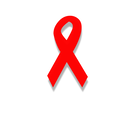 Anna: Hi, Rocko – thanks for joining DETAILS today! HIV prevention work is critical and often deeply meaningful to those working in the field. Can you tell me why this work speaks to you? Rocko: I found out I was positive for HIV and syphilis in 2002. I encountered firsthand the stigma and shame associated with these diagnoses. It was devastating, but it’s made me feel even more connected to the work I’m currently involved in. I’ve worked in various roles in the field of HIV prevention and care since 1994, just two years before medication was widely available. In the 90s, there was little support for people who tested positive for HIV from a care perspective, financial perspective, and housing perspective. We now have the medications and tools to prevent, treat, and support people with HIV. Despite this, there’s an urgent need to continue educating clinicians, staff, case managers, community health workers, and other people who are on the frontlines about these tools and resources. Academic detailing helps to close that gap and gives me the opportunity to live my passion of educating others about HIV.  Anna: Thank you for your openness in sharing your personal and professional experiences. Your passion for HIV prevention and care is evident. What’s the number one thing you want clinicians and staff in your community to do differently when it comes to HIV? Rocko: I’d love for them to change the culture of the entire clinic space and create a more welcoming environment for patients. There needs to be a focus on consistent communication coming from every professional a patient meets with when receiving care. All clinicians and staff need to be able to communicate with patients in a sex-positive way and in a way that connects with patients’ specific experiences, identities, and needs. They need to be comfortable communicating about sexual behavior, testing, and PrEP. It’s difficult to have these conversations. I've been doing this for a long time and I’m not perfect at it either, but once we practice and start getting comfortable with ourselves, then it gets a lot easier to be comfortable with patients. Anna: Modeling this type of communication during a detailing visit is key. It can help clinicians and staff feel more comfortable having the same conversations with patients. Can you share a story from the field about a positive response or reaction from someone you detailed? Rocko: There was an agency we worked with that hired a new physician, testers, and medical assistants for their mobile medical and HIV testing unit. They had never worked with this patient population, so our team did several trainings and 1:1 detailing sessions where we role played conversations with patients. We needed to bring them up to speed on how to have gender inclusive conversations and communicate with sex positivity. We had a lot of fun together. The team ended up going to Phoenix Pride to do a big testing event. We were delighted with their success in providing testing to the community and creating a welcoming and safe environment for people interested in being tested.  Anna: That’s a large event for the mobile unit team to tackle, while also succeeding in creating a safe space for all! Let’s talk a little bit more about the impact on patients. Can you share any data on the impact of your detailing work? Rocko: We have anecdotal evidence that folks are benefiting from our services. My colleague and I are closely involved in the gay community and people often tell us about their care experiences. We’re in an enviable position because we know a lot of people and hear things in passing. It helps us do a better job targeting our services; we can work directly with clinics that we’ve heard would benefit from detailing. I also recently connected with someone of trans experience who was tested at Phoenix Pride. They’ve had poor encounters in the past where clinicians and staff assumed the body parts they have. They shared that they had a positive experience with the mobile unit and felt comfortable throughout the visit. Being able to see our impact firsthand has been really motivating for me; it makes my heart sing. Anna: It’s rare to be so closely connected to the community that’s being impacted by your detailing work. It’s clearly been beneficial for your detailing efforts and getting your program up and running. Let’s wrap up with a final question - what has made you most proud of this project so far?  Rocko: I’m so proud of the way our team has come together and engaged with partners across the state. We’ve been able to leverage partnerships and community relationships to enhance program development, implementation, and dissemination. I’m also proud of our creativity in choosing our program’s name, DISH AZ (Detailing Improved Sexual Health). We send out a Weekly Special with a buffet of options on new evidence and information related to HIV prevention and care. We’re creating an active and robust network of professionals, while using food as our motivator! Anna: That’s an innovative way to keep your network engaged! We’re looking forward to hearing about your program as your team continues to expand its network and positively impact more people in the community. Thanks for chatting with us today and sharing your experiences, Rocko! Your passion for this work is palpable. Have thoughts on our DETAILS Blog posts? You can head on over to our Discussion Forum to continue the conversation! 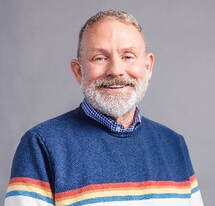 Biography. Rocko Cook serves as the Program Manager for DISH-AZ (Detailing for Improved Sexual Health in Arizona), a program of the Office of Evaluation and Partner Contracts for the Southwest Interdisciplinary Research Center (SIRC) at Arizona State University in partnership with Arizona Department of Health and Human Services. Rocko began working in the field of HIV in 1994 and is a community leader with over 15 years of experience implementing prevention and care programs in Arizona, Ohio, and Kentucky. In addition to his duties as a program manager, Rocko has served as a public speaker, presenter at local and national conferences, and as a consultant and leader for HIV community planning groups. Rocko has been living with HIV since 2002 and is passionate about improving sexual health for all communities. An interview with Rachelle Woods, MSN, RN, Nurse Consultant at the Colorado Department of Public Health and Environment (CDPHE). By: Aanchal Gupta, Program Coordinator, NaRCAD Tags: HIV/AIDS, PrEP, Detailing Visit 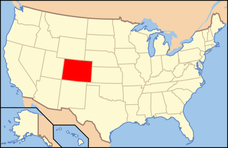 Aanchal: Hi Rachelle! We’re so excited to learn more about the work you’re doing. To start, can you tell us about your background and your current role? Rachelle: I’ve been a registered nurse in the state of Colorado for 26 years. My clinical background is obstetrics and gynecology (OBGYN), which includes family planning, HIV/STI education, and direct patient care. I've also taught OBGYN and other health courses at a few nursing schools and universities as well as in the community. I've been at CDPHE for a little over three months and will be functioning as a nurse consultant and public health detailer. I'm currently working to harness a deeper understanding of the needs of each of the communities that I'll be serving within our state. In order to do that, I’ll be conducting a statewide community needs assessment. I plan to tailor the needs of each geographic area when detailing to identify areas of urgent need and take into consideration epidemiological concerns among special populations. CDPHE is implementing a public health detailing approach to control STI and HIV infections which are increasing in Colorado and across the nation. My role is to serve as both a recruiter and consultant to optimize healthcare integration of public health prevention practices regarding STIs, HIV, and viral hepatitis within our state.  Aanchal: It’s exciting to hear how your background intersects with your current role at CDPHE. I’m curious about the community aspect that you spoke about. What services and supports already exist in your community for the patient populations you’re working with? Rachelle: CDPHE has 80 contracts with several community-based organizations and local public health agencies throughout the state. Our goal is to collaborate across sectors and provide services within several of our communities. Our partners include pharmacies, pharmacists, clinical providers, non-clinical persons, public health agencies, publicly funded healthcare centers, and other community-based organizations. 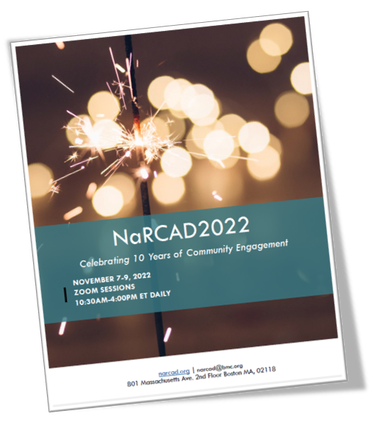 A graph from CDPHE showing the number of clients who received a PrEP prescription from 2015-2018. A graph from CDPHE showing the number of clients who received a PrEP prescription from 2015-2018. Aanchal: It's important to leverage others in the community to provide the best care and support to patients. Tell us about CDPHE’s prior successes with HIV PrEP detailing. Rachelle: We had a public health detailer a few years back that focused on PrEP rollout. Between 2014 to 2019, PrEP use increased from 383 to 3,659 among Coloradoans. We’re now working on expanding our public health detailing program and have been focused on partnering with other local agencies to bring the best evidence to clinicians. The Denver Health and Hospital Authority has helped us disseminate relevant updates to providers so that we can better meet the needs of Colorado’s most vulnerable populations. 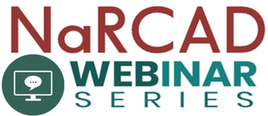 Aanchal: It’s impressive that your program had success with your first detailing intervention and that you’re continuing the momentum with a community-based approach to detailing. Since you began the role a few months ago, what resources helped you to learn more about academic detailing? Rachelle: I spent a great deal of time on the NaRCAD website and reviewing our internal resources. I was introduced to NaRCAD by my director, Rosemarie. She said, “I know that you have experience with educating clinicians, but I want you to take a look at this organization and see if perhaps there could be anything of benefit for you.” I spent a whole week absorbing the materials on the NaRCAD website. Being able to access the webinars and videos on demand was especially helpful. I'm somebody who likes to keep my finger on the stop button when watching a video so I can replay and relisten. I loved the fact that I could get a firm grasp of the concepts of AD at my own pace.  Aanchal: I’m glad you found the NaRCAD website to be useful as a new detailer. Based on that, if someone were in your shoes and was just starting out as a detailer, what advice would you give them? Rachelle: When you initially step into something new, you're outside of your comfort zone. Do you harness the fear and turn it into excitement for learning or do you shy away from it? It's important to step into it and remember that the goal is to better the communities that we live in. Take that excitement and run with it. Don't be afraid – as long as your intentions are in the right place, everything's going to work out. Aanchal: Definitely! I’m sure that’s a reminder many of us need to hear. Thank you so much for speaking with us, Rachelle! We look forward to hearing more about your findings from the community needs assessment and your exciting detailing project. Have thoughts on our DETAILS Blog posts? You can head on over to our Discussion Forum to continue the conversation! 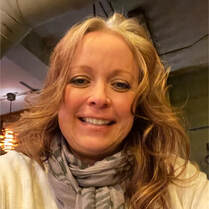 Biography: Rachelle Woods, MSN, RN brings an expansive clinical, leadership, and professional development background deeply rooted in OBGYN, STI/HIV, Family Planning, Transgender Health, and Infection Control to the Public Health Detailer role at CDPHE. Rachelle’s passion for all things infectious has afforded her a career rich in opportunity to meet people where they are and engage in robust discussion surrounding STI/HIV transmission, prevention, biomedical interventions and resources, and personal wellbeing. Her audiences have spanned multiple platforms and have included clinical and non-clinical staff, patients/families, teens, and students. Rachelle is looking forward to applying her skills and experience in support and growth of the Public Health Detailer role at CDPHE. Peer-to-Peer Learning: Building Meaningful Relationships through NaRCAD’s Peer Connection Program2/7/2022
An interview with Cheryl Radeloff, Senior Health Educator at the Southern Nevada Health District in the Office of Disease Surveillance. By Aanchal Gupta, Program Coordinator, NaRCAD Tags: Detailing Visits, HIV/AIDS, PrEP  Aanchal: Hi Cheryl, we’re looking forward to hearing more about your experience in the NaRCAD Peer Connection Program! How did you hear about the program and what encouraged you to sign up? Cheryl: I found out about the 2021 Peer Connection Program from a NaRCAD e-blast and was intrigued with the idea of joining a learning community. I instantly knew that I wanted to sign up since it would be a place where I could feel comfortable asking questions. I gravitated to the fact that I would be communicating with other peers in the field during cohort gatherings and learning about approaches that we could emulate in our program.  Aanchal: Yes, having that 1:1 time with your peer, as well as the cohort gatherings where other participants in the program come together, are added ways to network with the detailing community. Would you recommend this program to others that are interested in signing up? Cheryl: Absolutely! You should sign up even if you're a seasoned academic detailer or new to detailing. You're going to get tips, insights, and resources to get you started in a welcoming environment. This is a field where you never stop learning so it’s not only an opportunity to share lessons learned, but to learn from others as well. There are people from across the world who have different experiences and expertise that you can take back to your program.  Aanchal: One of the special aspects of the program is the sharing of resources and ideas. Are there any conversations that you had with your peer that made an impact on your detailing work or changed the way you thought about your program? Cheryl: The time spent with my peer was invaluable. During changing times with COVID-19, it can be daunting, and you tend to wonder if you’re doing things right or where you should even start. She was so generous in talking through challenges such as funding, recruiting providers, and more with me. She even shared a PowerPoint that they developed to educate pharmacy students about academic detailing. During the mid-point peer connection gathering, I was able to learn about a program in Chicago. They were very innovative; if they didn’t have an approach in place for their program, they designed it. Although my clinical topic may not be the same as others, there are still concepts and tools that I can model after these programs.  Aanchal: It’s great to hear about these fruitful conversations you had and how there’s always something to learn from others in the detailing community. How would you describe your experience overall with the peer connection program? Cheryl: Every time I attended a peer gathering, I always learned something and never had to question what I was gaining from these meetings. I think it’s essential to hear about what’s going on in the field. It’s difficult as we’re all busy people, yet it’s important not only for learning and development, but a necessary element to have peers to consult. I found the structure of this program to be helpful as we were given the reins to set up 1:1 meetings with our peer match over several months. In addition to that, there were gatherings where the entire cohort could come together and connect which I appreciated. 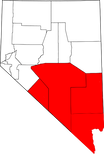 Aanchal: Those are some great takeaways, and we are glad to hear about the impact the program has had on your work! To wrap up, we’d love to learn more about what you’ve been up to at the Southern Nevada Health District. Cheryl: I’ve been with the Southern Nevada Health District for 13 years. Along with being a detailer, I’m also the public health co-chair for our HIV prevention planning group. We meet a few times a year to talk about HIV prevention initiatives, as required by the CDC. I also work with many of our community-based organizations to talk about the fundamentals of HIV. Academic detailing has been an important strategy for the work that we do. Our main AD initiatives we've been working on are uptake of PrEP and PEP. We have two PrEP navigators who've been educating the community about these initiatives. Lastly, congenital syphilis has been a big topic for us as we’re currently fourth in the country for the highest rates of syphilis. Aanchal: Thank you so much for sharing your experience, Cheryl. We’re so glad that the Peer Connection Program has had a positive impact on your detailing work and can’t wait to hear more about your program’s AD initiatives in the future. We look forward to continuing these connections with our 2022 cohort! Have thoughts on our DETAILS Blog posts? You can head on over to our Discussion Forum to continue the conversation!  Biography: Cheryl Radeloff is currently a Senior Health Educator with the Southern Nevada Health District Office of Epidemiology and Disease Surveillance. Formerly she was Disease Investigation and Intervention Specialist II. She is also an adjunct professor of Sociology at UNLV as well as Women’s Studies at the College of Southern Nevada. She received her Ph.D. in Sociology from the University of Nevada, Las Vegas in 2004. Her dissertation “Vectors, Polluters, and Murderers: HIV Testing Policies toward Prostitutes in Nevada” explored the development of mandatory testing laws for legal and non-legal sex workers in the state of Nevada. Her work duties include serving as the public health co-chair for the Southern Nevada HIV/AIDS Prevention Planning Group as well as training community providers on Rapid HIV Testing. She is the co-author of multiple editions of Transforming Scholarship: Why Women’s and Gender Studies Students are Changing Themselves and the World with Michele T. Berger for Routledge Press. An interview with Karen Curd, Program Manager, Midwest AIDS Training and Education Center in Indiana (MATEC-IN). by Anna Morgan, MPH, RN, PMP, Senior Manager, Training & Education, NaRCAD Tags: HIV/AIDS, PrEP, Training 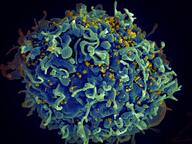 Anna: Thank you so much for joining us today, Karen. We're excited to learn more about you and your program. Can you start off by telling us a little bit about your professional background and how you ended up in your current role? Karen: Thanks for having me! I stumbled into public health by accident. I majored in kinesiology in college and interned with a health promotions department at a local hospital after graduation. That’s what really got me interested in health education. I ended up meeting somebody who worked at the local county health department in STI prevention. She encouraged me to apply for an open position as a disease intervention specialist; that ended up being both a challenging and rewarding job. It taught me so much about public health and I was hooked! I moved on to work as the STI screening and surveillance coordinator, which allowed me to interact more with healthcare providers. Nearly a decade went by of working in STI prevention before I joined the Midwest AIDS Training and Education Center-Indiana (MATEC-IN) team as the training coordinator. I now work as a program manager at MATEC-IN.  Anna: We’re so happy you ended up in public health! Can you share more about your current role as program manager and about MATEC-IN as a whole? Karen: MATEC is part of the national network of AIDS Education and Training Centers. MATEC houses 10 states across the region, and I work at a local partner site in Indiana. We provide training and technical assistance to healthcare providers throughout the state, primarily focusing on HIV and increasing their comfort and capacity to provide HIV care. For those outside of the field, I usually explain my role as part health educator, part event planner, and part networking and resource specialist. A lot of what we do is connect healthcare providers to all the amazing organizations and individuals who provide support and care for people living with HIV. We spend a lot of time talking to people, finding out what information or resources they need, and connecting them. We also develop new tools and trainings as needed. Anna: Your team is doing such incredible work supporting and connecting healthcare providers. How do you see the strategy of academic detailing fitting into this work? Karen: The Ending the HIV Epidemic (EHE) initiative aims to reduce new HIV infections in the United States by at least 90% by the year 2030 through activities focusing on four pillars. The four pillars are: diagnose, treat, prevent, and respond. At MATEC-IN, we hope to focus our EHE efforts on the diagnose and prevent pillars by encouraging and engaging primary care providers throughout our state. We want to be recruiting these community providers to increase routine HIV testing, and to become comfortable recommending and prescribing pre-exposure prophylaxis, or PrEP, to their patients. We hope to use academic detailing to educate these busy providers. We see AD as another great tool in our toolbox.  Anna: You recently partnered with us for a customized academic detailing virtual training and successfully recruited 18 trainees. Can you tell us a little about what that process was like and what tools you used to recruit those trainees? Karen: We planned our training as a regional MATEC opportunity and opened recruitment to our entire 10-state region to any organization funded by EHE. We first hosted an introduction to academic detailing session for our other MATEC sites which gave them an opportunity to learn about what academic detailing was and begin thinking about who they might want to recruit from their state for the 3-day NaRCAD training. Because the training is extremely interactive and is limited as far as size, we wanted to make sure that we were recruiting the right individuals. Our director, Malinda Boehler, developed a recruiting tool that we shared with the different site directors in our region. We then asked each site to recruit two to three individuals from their state and have the individuals complete a short questionnaire that we developed prior to registering for the training. Anna: You did a thorough job recruiting detailers and it shows; we had an amazing training with you all because you selected such engaged and passionate trainees. Do you have any tips you would share with other folks who are looking to recruit a large number of trainees for a customized training? Karen: Set expectations. I would stress the importance of clearly defining training expectations as far as what attendees should and should not expect to learn over the 3 days. We wanted to make sure that it was clear to trainees that the NaRCAD training would not cover the day-to-day of how an academic detailing program would be rolled out at their specific institution, but rather the communication techniques used during an academic detailing visit. We had a lot of conversations with trainees before they came to the training and I think that helped to set those expectations. Anna: That’s a great tip! You were in a unique position where you were able to observe the training. What were some of your key takeaways?  Karen: I’m so thankful to have had the opportunity to observe. Even though I technically wasn’t a participant who engaged in role play, I found that learning from other trainees was the most valuable. The training facilitators were also excellent. They provided a very safe and structured environment for learning and role playing. Not only did the participants have the opportunity to practice and role play, but they were also encouraged to offer feedback to peers. We had a range of folks in our small group; some had been working in the field for years and some were brand new to the field. It was amazing to see them learn from each other. One participant shared with me that the training provided them with persuasive communication skills that will be useful in situations outside of a detailing visit, like an interaction with a client, a patient, or partner organization. Anna: The skills you learn at an academic detailing training can be applied to so many situations, including those with family and friends! Is there any additional advice you would share with others who are looking to become a detailer or support a detailing program? Karen: Be flexible. When our team initially began looking for information about academic detailing, we were looking for existing materials that we could adapt for our state and do the detailing ourselves. After meeting with your team at NaRCAD and learning more about the process, we realized that we needed to redirect our efforts to recruiting trainees from EHE funded sites within our region to broaden our reach. I would also recommend starting recruitment efforts early to allow plenty of time to find the right recruits in order to build a successful training cohort! Anna: That's great advice, Karen. What does the future look like for this group of trainees and how do you plan to continue to support them across state lines? Karen: Our region has hired an EHE coordinator who plans to engage frequently with the training cohort. We want to bring these folks together through monthly check-ins because we know that detailing can be isolating. Not all the trainees are doing the same exact work, but we think getting them connected with folks who are doing detailing in other states on the same topic will be beneficial. We’ve also been spreading the word about academic detailing at our health department in Indiana since our state doesn’t have a structured AD program like some other states do. We hope to get more folks trained from our state in the future and use academic detailing across diverse topic areas. Anna: How exciting! We’re thrilled to continue to partner with you as academic detailing expands throughout your state and region. We look forward to future trainings and hearing about your team’s successes! Have thoughts on our DETAILS Blog posts? You can head on over to our Discussion Forum to continue the conversation! 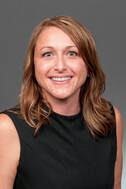 Biography. Karen Curd is the Program Manager at the Midwest AIDS Training and Education Center (MATEC) in Indiana. She has worked in public health for nearly two decades, starting her career as a Disease Intervention Specialist for the Marion County Public Health Department (MCPHD) in Indianapolis, Indiana. She also served as Screening and Surveillance Coordinator for MCPHD before transitioning to the role of HIV/MAI Training Coordinator at MATEC Indiana in 2011. In her current role of Program Manager, Karen oversees several MATEC initiatives focused on providing training and technical assistance to healthcare providers throughout Indiana. Karen received her BS in Kinesiology from Indiana University in Bloomington, Indiana. An interview with Carla Mena, Capacity Building Manager at Hands United of the Latino Commission on AIDS. by Aanchal Gupta, NaRCAD Program Coordinator Tags: HIV/AIDS, Training, Program Management  Aanchal: Hi Carla, thank you so much for joining us today! We’re excited to delve into Capacity Building Assistance (CBA), as well as feature Hands United of the Latino Commission on AIDS on our blog. How did you get started in this line of work, and could you describe your current role as a capacity building manager? Carla: I worked at a Duke University hospital in North Carolina for 7 years as a bilingual research coordinator in both local and global studies. I have research experience in hepatitis C, HIV, immigration, LGBTQ+, childhood obesity prevention, neonatal vaccinations, reproductive health, and the intersection of these areas. I also did some leadership development work, as well as community organizing. I had the opportunity to connect with teams and individuals on how to work with underserved populations, and taught them about social determinants of health, cultural humility, and health equity. At Hands United, I began as a capacity building specialist, and have now transitioned to a capacity building manager. I make sure that we’re thinking within our funding guidelines while also highlighting the intersections of folks living with HIV or who may be at risk of acquiring or transmitting HIV. As a manager, there's the administrative side of supervision, following up on tasks, and so on. The other aspect of it is to continue to provide technical assistance (TA) to our jurisdictions. For example, if someone is interested in implementing an HIV self-testing program in a non-clinical setting, I can assist with that. I enjoy the fact that, although I'm not a specialist anymore, I still provide TA with the team. Both of our directors also provide TA, which I think is unique.  Aanchal: Wow, you have such an extensive background in public health and sounds like it has informed your current work! Tell us more about the Hands United program as well as the importance of capacity building assistance. Carla: The Hands United of the Latino Commission on AIDS is a capacity building technical assistance program (CBA). The CHANGE (customized, holistic, analytical, network-building, grassroots, evaluatory) model is an approach developed by the Latino Commission on AIDS. Hands United is one of the two programs available. It combines community-based organizations, health departments, or any other social service organizations to optimally plan, integrate, implement, and sustain prevention programming and services. CBA improves the performance of the HIV prevention workforce by building individual-level competencies and technical expertise while also strengthening organizational capacities. We serve 19 jurisdictions in the southern region of the United States including, Arkansas, Alabama, Delaware, D.C., Florida, Georgia, Kentucky, Maryland, Louisiana, Mississippi, North Carolina, South Carolina, Oklahoma, Tennessee, Texas, Virginia, and West Virginia. An organization will contact us about various topics related to HIV prevention such as recruitment for HIV testing, referrals for HIV medical care, referrals for PrEP, nPrEP, STIs, hepatitis C, or TB screening. Our role is to help them figure out what resources they need. Then we can support them with webinars or resources such as literature reviews, marketing samples, and successful stories.  Aanchal: Thanks for providing some context on the program and intervention. It’s always great to know that there are resources like this out there for organizations to utilize. Could you describe how CBA relates to academic detailing? Carla: Detailing is very fundamental for the work that we're doing because it teaches effective social and personable skills that organizations can take out in the field. Sometimes health departments reach out to us and say that they are not sure how to recruit for providers to refer or prescribe PrEP in primary care settings. These are times when we discuss academic detailing and how it can be useful for them. Although we’re not detailing, we’re able to provide information in a way that makes sense to those who need it. We ask them questions to better understand their program and help programs figure out exactly what they need. We ask questions like, “What is part of your package?” “What are the questions you're asking clinicians?” “What is your elevator pitch?” “Is there capacity and effort from the staff?” We might even say, “You need detailing, but you don’t have enough staff to be able to detail all the primary care providers in your county.” When this happens, we provide assistance on developing a recruitment plan that’s feasible for the requestor.  Aanchal: Those are all important questions for programs to consider as they brainstorm what it is that they need. Is there something that your program was able to accomplish during this past year that you’re proud of? Carla: We were able to work with your team at NaRCAD and host a training this past July. This was a highlight for us because we were able to have a good representation and engagement from the jurisdictions. A community was created through the participation of the trainees. We gained a lot of knowledge that we needed in order to provide TA or CBA services to our programs. Aanchal: That’s so nice to hear! Speaking of the training, I’d love to hear about your experience, particularly as you’re someone who was not planning to be a detailer. Carla: For me, it was a great training because all the training facilitators were so welcoming of feedback and even role played to include our specific experiences. They took time to understand our roles and built a sense of community. Additionally, it was very hands-on, and I enjoyed having the opportunity to role play a detailing visit. Walking in the detailer’s shoes helped me understand exactly what could be happening to them during a visit or where they may be challenged. Fusing my own lens with the lens of the detailer was very helpful. 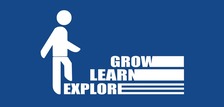 Aanchal: I agree -- the trainings provide a practical space for trainees to share their unique experiences while practicing the communications techniques necessary to carry out a 1:1 detailing visit. Is there any advice you would give to someone who may be hesitant about attending an academic detailing training if they ‘re planning to be a program manager rather than a detailer? Carla: I would say, go for it! Although we may not be detailers, being able to walk through what a detailer does has made me a better CBA specialist and manager because I understand the processes through the eyes of the detailer. Watching webinars or reading resources on academic detailing was helpful and effective, but attending a training gave the opportunity to put it all into practice. Aanchal: That is great advice! Thank you so much, Carla, for speaking with us and it was a pleasure having you at our training. We look forward to working together in the future. Have thoughts on our DETAILS Blog posts? You can head on over to our Discussion Forum to continue the conversation! 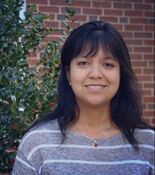 Biography: Carla is the Capacity Building Assistance Manager for Hands United at the Latino Commission on AIDS. Prior to joining the Hands United at the Latino Commission on AIDS team, Carla worked at Duke University Hospital, as a bilingual research coordinator working with studies that were both local and global. Carla has extensive research experience in several fields including hepatitis C, HIV, immigration, LGBTQ+, childhood obesity prevention, neonatal vaccinations, and sexual and reproductive health. In addition, she has experience training people and partnerships on how to work with under-represented and under-served populations in the US. Some of those trainings include exploring social determinants of health, cultural humility, and health equity. She graduated from Meredith College with a BS in biology. Carla is a certified Culture Facilitator, Diversity to Belonging Facilitator and Culture Assessor. Innovations in e-Detailing: Using Digital Platforms to Increase PrEP Prescribers in Oregon4/15/2021
An interview with Ashley Allison, Lead Training Coordinator, Oregon AIDS Education and Training Center (AETC). Ashley works with health departments and clinic systems to coordinate HIV-related training across the state ranging from prevention to care and treatment. She also oversees the detailing program where their main goal is to expand PrEP access in Oregon. by Anna Morgan, MPH, RN, PMP, NaRCAD Program Manager Tags: COVID 19, Detailing Visits, E Detailing, HIV/AIDS, PrEP  Anna: It was so nice to catch up on your team’s progress at our recent virtual training with the San Francisco Department of Public Health! Your program launched about two years ago and really took off when you pivoted to e-Detailing. Can you tell us more about that? Ashley: Our program started with in-person visits and we would send our detailers out with a little briefcase of materials and an iPad full of slide decks—it was pretty “old school”. When the pandemic began, we had to take a hard look at our entire program to successfully pivot to e-Detailing. As we began e-Detailing, we developed an outreach process and approach that has been working well for us. Here are a few of the steps and considerations that you can share with other new programs:
We’re trying to find new ways to engage clinicians who’ve received the materials but haven’t yet scheduled a detailing visit. We want to provide multiple entry points and make our detailing visits more accessible. 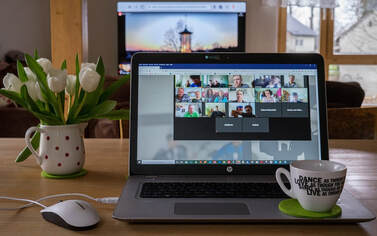 Anna: Thanks for outlining this process and giving us a better understanding of how your program gains access to clinicians! What do you do to connect with clinicians who have yet to set up an appointment? Ashley: One of our solutions has been what we call “virtual office hours”. In the calendar slots where a detailer has no detailing visits scheduled, they can hold open office hours, and we send out a promotional email about them to clinicians. Multiple clinicians can be there at once and chat about anything under the umbrella of the HIV care continuum. The detailer slowly shifts the clinicians who attend office hours into a detailing relationship by creating opportunities to meet again 1:1 to further discuss certain topics. Anna: That’s such an innovative approach in gaining access. Can you discuss some of your team's other recent successes as it relates to virtual detailing?  Ashley: Virtual detailing has allowed us to increase our number of detailing visits due to the decreased number of resources and time required to complete an e-Detailing visit, including scheduling. We spent a lot of time looking into different platforms for automated appointment scheduling and ended up finding the Appointlet scheduling app. It allows us to manage all of our detailers’ schedules in a centralized place. It’s extremely intuitive and easy to use. We’ve also switched our evaluation from a handwritten survey to a digital version on Survey Monkey. We made our survey significantly longer when we moved it to Survey Monkey and pulled a lot of our questions from example surveys from other programs and the national HIV curriculum website. Our questions are specific to knowledge, attitudes, and practice and allow us to distinguish if a clinician isn’t doing something because they don’t have the knowledge, they don’t feel comfortable, or they don’t see it as within the scope of their role. Despite the lengthier survey, our response rate has been much higher now that we can send follow-up emails with the survey link right in it. Survey Monkey has also allowed us to quickly review the pre-evaluation data prior to detailing visits. If there are any red flags, we can highlight it for the detailers so they can customize which key messages will likely resonate with the clinician during their visit. Anna: That's great. There are certainly advantages to using a virtual platform to conduct the different steps of the program process. What are some of your goals for the remainder of 2021?  Ashley: We want to start implementing a successful hybrid model of in-person detailing and e-Detailing while also training our new detailers in a robust and consistent way. We want to continue with our main goal of increasing the number of PrEP prescribers in Oregon and making it more accessible across the state. We also want to start detailing pharmacists, depending on how the current legislation lands around providing supports for pharmacists to prescribe PrEP. We feel confident in our key messages for primary care providers. We’re excited to start crafting our key messages in ways that appeal to pharmacists and address the different barriers to implementation for them as well. Anna: Those are excellent goals! What’s one tip that you would offer other academic detailing programs who’d like to replicate your success? Ashley: Utilize e-Detailing; it’s a wonderful tool! Many developers are coming out with apps to serve this new digital landscape that can assist in implementing e-Detailing successfully. It’s just a matter of finding the right tools by taking a little bit of extra time and patience to experiment. I would also say that it’s important to build a relationship with your state’s health department leadership and obtain an official endorsement letter from the state supporting your activities. Establishing a relationship not only positively impacts your program’s visibility and ability to gain access to clinicians, but it also helps to make sure you're aware of other outreach initiatives, which allows you to align efforts and not duplicate processes. Anna: Terrific advice, thanks, Ashley! You’ve given us such a unique perspective on e-Detailing. We look forward to continuing to hear about all of your team’s successes and groundbreaking ideas. Have thoughts on our DETAILS Blog posts? You can head on over to our Discussion Forum to continue the conversation! 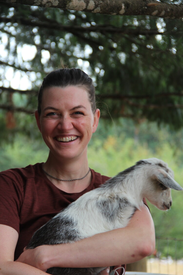 Biography. Ashley has been with the Oregon AETC since 2018 where she works to bridge the gap between local public health priorities and education and training opportunities available to providers. Before joining the Oregon AETC, Ashley spent over two years working for local and international HIV focused CBOs in Johannesburg, South Africa. A majority of her work in Johannesburg focused on grant writing and managing the implementation of community-based HIV medication adherence models in partnership with provincial and municipal public health. Prior to moving to Johannesburg, Ashley spent five years working at Planned Parenthood in Portland, OR occupying a variety of roles, including clinic assistant, phlebotomist, patient advocate, and call center representative. Ashley credits her passion for supporting patient access to quality HIV prevention and care to the experiences she had with patients while providing HIV testing and counselling services at Planned Parenthood. Anna Morgan, MPH, RN, PMP, NaRCAD Program Manager Tags: Conference, COVID-19, Deprescribing, Diabetes, E-Detailing, Elderly Care, Health Disparities, HIV/AIDS, International, Jerry Avorn, Mental Health 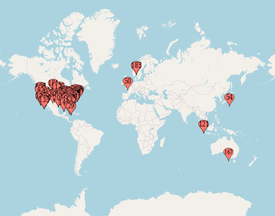 Map of where NaRCAD2020 attendees tuned in from Map of where NaRCAD2020 attendees tuned in from Over 240 members of our worldwide community came together to be a part of something special--our 8th annual conference, and our first in a virtual setting. We were able to expand our reach and overcome barriers like travel time and financial constraints that have prevented our colleagues from attending previous conferences. There was a palpable sense of positivity, enthusiasm, and resilience, especially in a virtual space. We’re so proud of evaluations that cited a renewed sense of passion and commitment to AD based on the new lenses we applied to our programming, including comments about feeling “empowered” to continue this work in the year ahead (even amidst inevitable Zoom fatigue.) Check out our highlights and access all event resources below and on the Conference Hub.
 With so many of you expressing a continued need around more of our peer working sessions, we’ll be focusing largely on that in 2021—we can’t wait to support your work this year. In the meantime, tell us what you need to make next year a success. See you in 2021. The NaRCAD Team Have thoughts on our DETAILS Blog posts? You can head on over to our Discussion Forum to continue the conversation! An interview with Vishal Kinkhabwala, MD, MPH, HIV Prevention Activities Coordinator, HIV Prevention Unit, Michigan Department of Health and Human Services. The overarching goal of the HIV Prevention Unit is to expand access to PrEP for patients throughout the state of Michigan. by Anna Morgan, MPH, RN, PMP, NaRCAD Program Manager Tags: Conference, Detailing Visits, E-Detailing, HIV/AIDS, PrEP 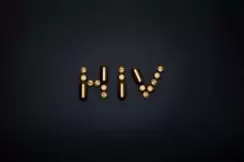 Anna: We’re so happy to be catching up with you today, Vishal! Can you tell us a little bit about yourself and how you got into the work of academic detailing? Vishal: My background is in both public health and medicine. After finishing medical school, I realized that as much as I loved the clinical aspect, I wanted something that combined both my passions of public health and clinical medicine. My first job after graduating was in New York where I linked newly-diagnosed HIV patients into care. About a year later, I found an opportunity at the Michigan Department of Health and Human Services that fit with what I ultimately wanted to do, HIV prevention. My current work is focused on ending the HIV epidemic in Wayne County. One of my favorite parts of my job is detailing, which I do part-time. Our program officially began detailing in September of 2019. We’re in the process of making the jump to e-Detailing, but we’re still in the planning stages. Anna: Before we chat about how you and your team have been preparing for e-Detailing, let’s talk about how clinicians in Michigan have received your messages around PrEP. Were clinicians receptive to your detailing efforts when you were conducting in-person visits? Vishal: Most clinicians that we detailed were either already familiar with PrEP or had that enthusiasm to learn about it. Many of the clinicians were excited about helping with MDHHS’s overall goal of increasing patient access to PrEP and talking about the associated HIV prevention counseling. Clinicians were typically familiar with PrEP but weren’t aware of the nitty-gritty details of how to prescribe and manage it. A big part of what we discussed during our detailing visits was identifying which patients are candidates for PrEP. Our program’s purpose is to increase access, even if it’s just for one or two patients.  Anna: It’s wonderful that the clinicians you’ve detailed have been supportive of your program’s goals. Transitioning to e-Detailing will certainly be easier knowing that you have support from clinicians. What have you learned so far from planning for e-Detailing? Vishal: It’s been fun prepping for e-Detailing with our team. The big thing I’ve learned through networking with detailers from other jurisdictions is to be flexible and be prepared for any situation, especially in the virtual environment. You might have one idea of how your session will go, and it could go in the opposite direction, which is part of the charm of detailing. It’s about forming a connection and tailoring your methods to what the clinicians' and practices' needs are. I’m a relationship-oriented person, and I feel like that’s one of the most rewarding parts of doing this. One of the things that also excites me about virtual education is the access to information right at your fingertips. For example, I was detailing a clinician about PrEP and HIV prevention last year who asked me, "Well, I have this issue with a lot of patients with STDs. Can you talk to me about STD treatments?" It was an in-person visit, so I only had the materials that I had brought with me, which were all focused on HIV. The beauty of doing e-Detailing is that you can have resources pulled up and can get the information for the clinician almost instantaneously. As I said earlier, detailing is all about having that relationship, meeting the clinician where they're at, and serving their needs. Virtual education gives you another tool to be able to do just that.  Anna: What a positive spin on e-Detailing! Speaking of sustainability, that’s the theme for our upcoming conference. You attended our conference last year in Boston and will be presenting at our virtual conference this year. What were some key takeaways from last year’s conference that you were able to bring back to your program and implement? Vishal: Last year’s conference was my first exposure to NaRCAD and the world of detailing- it was honestly one of the coolest experiences I’ve ever had. It was great to be exposed to e-Detailing through the virtual detailing panel before it was even brought to the forefront during COVID. Because I was hired a few months prior to the conference, I had not attended a training yet. I joined the “AD 101” breakout group, which was supremely helpful. When I got home, I did mock detailing sessions with my colleague and reviewed all the resources on the NaRCAD website. I also practiced detailing on the stress balls I have in my office! Anna: It’s so nice to hear how impactful the conference was for you as a new detailer. We strive to include a diverse audience of new and veteran detailers each year. What are you looking forward to most about this year’s conference? Vishal: There are so many absolute rock stars in the field of detailing. I’m looking forward to getting to see familiar faces and meet new faces over the virtual platform. I’m excited for the exchange of ideas, programs, and concepts. So many people have given me ideas for our program in Michigan. It’s such a good feeling when I can say that not only have I received help from others, but that I’m able to inspire other people. It’s also comforting to know that this is such a passionate group of people that no matter the adverse situation, the work continues getting done. I’m counting down the days until the conference in November! Have thoughts on our DETAILS Blog posts? You can head on over to our Discussion Forum to continue the conversation! 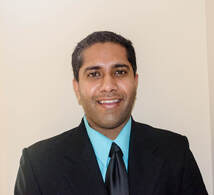 Biography. Vishal has been working with the Michigan Department of Health and Human Services since August 2019 as the HIV Prevention Activities Coordinator. His work focus is on program planning and implementation for the Ending the HIV Epidemic Initiative, focused on southeastern Michigan. As part of this initiative, he works as a part-time Academic Detailer with a focus on HIV Prevention with the overarching goal of increasing access to PrEP throughout the state of Michigan. He completed his Master of Public Health degree from Benedictine University in Lisle, IL in August 2013 and his Doctor of Medicine degree from Avalon University School of Medicine in Willemstad, Curacao in June 2018. Prior to working for the State of Michigan, Vishal worked for the New York State Department of Health as a Disease Intervention Specialist, working on a pilot HIV Molecular Clusters initiative. Vishal is particularly looking forward to moving the Michigan Department of Health and Human Services PrEP Detailing program forward into the realm of virtual “eDetailing.” An interview with Julie Anne Bell, MPH, Program Manager of Clinical Operations, Bureau of HIV, New York City Department of Health and Mental Hygiene. The mission of the Clinical Operations and Technical Assistance Program (COTA) is to provide innovative, culturally responsive, needs-based technical assistance and training to organizations and individuals working with people impacted by HIV. by Anna Morgan, RN, BSN, MPH, NaRCAD Program Manager Tags: Detailing Visits, E-Detailing, HIV/AIDS, Materials Development  Anna: Thanks for joining us today, Julie Anne! Can you tell us about yourself and what brought you to your role as Program Manager of Clinical Operations at the New York City Department of Health and Mental Hygiene? Julie Anne: My first position out of graduate school was as a research assistant in the HIV program at the State University of New York. I’ve moved through a lot of sexual health work and have been with the Bureau of HIV at the New York City Department of Health and Mental Hygiene for three years. I love the programmatic work that I do in my current role. I deliver training, tailored technical assistance and public health detailing to clinical and non-clinical providers who care for people with HIV. Being a content expert and bringing the information directly to the clinics to support them is rewarding and, most of all, fun. 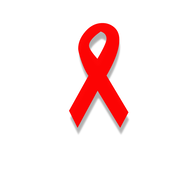 Anna: It sounds like your career path has led you to a wonderful position! What detailing topic is your program currently working on? Julie Anne: We’ve been focused on developing a public health e-Detailing campaign to support and strengthen providers’ initiation of immediate antiretroviral treatment, or “iART”. iART is for people newly diagnosed with HIV or returning to care after a long lapse. It recently became a standard of care in New York. Immediate initiation of ART is associated with several health benefits for people with HIV, including a significant decrease in the time to viral suppression, which ultimately, reduces the risk of disease progression, morbidity, and mortality for people with HIV as well as onward transmission and new HIV diagnoses. Prescribing ART immediately versus waiting for the patient to return after all lab work/genotype results come back can feel like a paradigm shift for providers, but HIV medications have advanced so much in terms of their high threshold to resistance and there is no longer a need to wait. Anna: Your team recently completed a campaign on strengthening the integrated care approach, which is a team-based approach where mental health care and medical care is offered to patients in the same setting. How did your previous campaign help shape your new iART campaign?  Julie Anne: During our previous campaign, we brought providers an array of materials and resources to help them meet New York City’s Ending the Epidemic benchmark. We included HIV-specific materials and resources, as well as additional tools to address substance use, housing, and mental health in order to strengthen their integrated care approach. Among those HIV-specific materials and resources was information about iART. During our detailing sessions, providers were consistently reporting the same barriers to implementing iART in their clinics. Barriers that were reported were lack of clinic workflow for iART, not knowing how to get the medications covered/paid for immediately, and feeling uncomfortable prescribing ART before receiving a lab based confirmatory HIV test and genotype testing result. We began to realize that the providers needed more support around this topic. Because our work is heavily data driven, we used the feedback we received from providers on the barriers they were experiencing around implementing iART to create our iART campaign and associated public health detailing action kit. The tools and resources in our detailing action kit highlight each component of iART, including HIV testing, payment options, genotype testing, and example clinic workflow. In the past, our program developed the public health detailing action kits and would hire consultants to do the detailing. For these campaigns, my colleague and I wanted to deliver the messages to the clinics ourselves and focus on relationship building. Anna: Having strong detailer-clinician relationships is an integral piece of a successful academic detailing program. How have you been able to build strong relationships with clinicians? 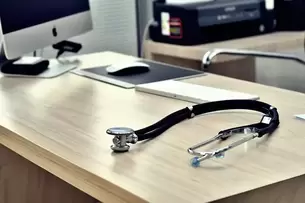 Julie Anne: We visited over 100 clinics that provide HIV services in New York City during our last detailing campaign, and we now have friendly relationships with these providers because of the trusting relationships we’ve built with them through our previous detailing work. Our team also attends regional group meetings for HIV providers to bring more awareness to our work and continue to build relationships and connections. We recently hosted a virtual launch event for our iART campaign and we had over 200 providers register. We provided an overview of COTA, our services, and e-Detailing. We wanted the providers to know exactly how we’ve pivoted during COVID-19, why this work is still important, and that we would reach out to them in the coming weeks for an e-Detailing visit. Being with the health department, we know where people are getting their care for HIV in New York City. We’d love to reach everyone who’s working with people who are impacted by HIV, including non-clinical providers. Since iART is an integrated care approach, both clinical and non-clinical providers are an integral part of the process. The first steps in the iART process begin with a positive HIV test which can happen in a non-clinical setting, such as a community-based organization. The next steps include looping in a medical provider with the addition of non-clinical support, such as benefit navigation, social work, and peer navigation. It can take multiple providers of different training and expertise to work together to achieve iART seamlessly.  Anna: Wow! You’re certainly connected to a lot of clinics and it doesn’t sound like you’ll have issues recruiting clinical or non-clinical providers for your upcoming e-Detailing visits. How has your team prepared for e-Detailing? Julie Anne: When the reality of the pandemic hit, the idea of transitioning our detailing program to a virtual platform was overwhelming. We did a deep dive into the existing literature to see how programs have done virtual detailing in the past. NaRCAD has also been an amazing resource to learn from and we continually check the website for new resources on e-Detailing. We then developed a Standard Operating Procedure (SOP) for our iART e-Detailing campaign. We worked as a team to create a step-by-step guidebook that includes our key messages, how to do a needs assessment, and how to address barriers that we expect might come up. We’re currently working on doing mock e-Detailing sessions with our colleagues and with providers who are iART champions in New York City. Our SOP will help guide us during these mock sessions and help prepare us for our field visits this fall. Anna: Creating a Standard Operating Procedure is a great idea and will be extremely beneficial to prepare for field visits. What are some challenges that you expect to face when you begin your e-Detailing work? Julie Anne: We’re expecting the usual technical problems like poor internet connection and access issues, but we’re working on strategies to overcome this. We also expect that providers will be experiencing burn out, so they may be hesitant to make some of the changes in their clinic to implement iART, such as establishing a new clinic workflow. However, the resources we’ve selected and created for our iART detailing action kit are a direct result of what providers reported that they needed during our last detailing campaign. We’re hopeful that the tools we’re providing will enable an easy transition for providers to adopt our key messages related to iART. 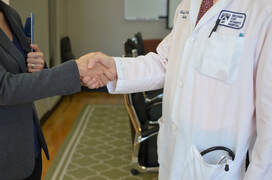 Anna: It’s remarkable that you’ve been able to create your e-Detailing campaign based on the specific needs of the providers in your community. How else is your team working towards sustainability? Julie Anne: iART is a sustainable practice because once providers understand the “why” and “how” to do it and the steps involved, there is no reason to go back to waiting to initiate a patient with HIV on ART. It’s important that people with HIV are given the opportunity to start ART immediately because it provides individual and public health benefits. iART is the new standard of care in New York, which encourages providers’ commitment to the practice, and the iART detailing kit will introduce tools and resources to increase the knowledge and confidence of providers to prescribe ART immediately. Additionally, COTA offers ongoing technical assistance at the request of the providers and full-day trainings on iART for new providers. We’re currently focused on our iART e-Detailing project, but it’s always an open-door relationship with providers. Right now, it’s iART, but providers can reach out to us about anything they’re struggling with and we’ll work with them to overcome the challenges they’re facing. Have thoughts on our DETAILS Blog posts? You can head on over to our Discussion Forum to continue the conversation! 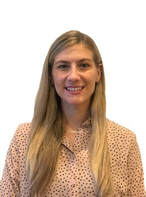 Biography. Julie Anne began working at the NYC Health Department in 2016 with the Bureau of Sexually Transmitted Infections in a research role. She transferred to the Bureau of HIV in 2017 where she focused on health policy work, and was promoted to her current role with the Clinical Operations team. She now manages the team that focuses on providing data-driven technical assistance to clinical and non-clinical HIV providers across New York City on HIV specific and supportive topics that address social determinants of health for people with HIV. Julie Anne is currently preparing to conduct e-detailing visits with NYC providers to support and strengthen practices for initiation of immediate antiretroviral treatment (iART) for people with HIV. An interview with Megan DeNubila, Provider Relations Manager, and Jessica Alward, Academic Detailer, from the Bureau of Infectious Disease Control with the state of New Hampshire. Their mission is to improve public health by promoting evidence-based practices in the areas of infection prevention, screening, testing, and management for HIV, TB, STD/STIs, and Hepatitis. by Winnie Ho, Program Coordinator Tags: Detailing Visits, HIV/AIDS, Rural AD Programs, Sexual Health, Stigma  Winnie: Thank you both again for joining us today! In one of our past technical assistance discussions together, we’ve gone into depth about some common clinician stigma and barriers. In particular, you shared with us that because New Hampshire was a lower incidence state for HIV, you would encounter clinicians who felt that that particular issue didn’t really fall within their patient population. It’s a common barrier we hear from many detailing programs, whether they address opioid use disorder (OUD) or infectious diseases. Can you go into more depth about your experiences with this phenomenon, and how you’ve addressed it? Megan: Providers are extremely busy, and they’re often expected to be an expert on so many topics. Our program helps bring providers filter through new information so they can start to bring it up with their patients. By walking them through the best practices, the recommendations, and local and state-specific data, we can show them that it’s something that is impacting their patient population. In addition, one of the things that stuck with me from the NaRCAD training we attended was that because there’s so much new information, providers would be expected to read up to 17 papers a day just to stay current. Something like HIV would be one of many things that providers are concerned with on a daily basis. Our job is to help bring the most relevant and evidence-based information to the surface for them and their patients.  Jess: Megan is completely right on this! I’m in provider offices a lot. What I hear is that they often feel like they're just treading water and not able to keep up with new information. What we try to do is bring that info to them in a way that doesn’t feel like just one more thing to squeeze into a day. When we talk to them about stigma, we don’t want to start there. We want to start with some easy and really useful information and tools that will make their job easier. By doing that work first, they feel like the precious time they are giving to us is worth it. After a couple visits, emails, or phone connections have happened, that's the time to bring up new approaches and topics. Winnie: I really appreciate that your lens on this barrier embodies a ‘How do we best support you?’ attitude. The goal of academic detailing is to navigate and close knowledge gaps in hopes of changing clinician behavior. Sharing knowledge and having difficult conversations is our best tools to address clinician stigma and discomfort. It’s not a battle against them and certainly the goal isn’t to shame clinicians. This is a collaborative operation to improve health outcomes.  Megan: Right, in the end, our mission is to close health inequities altogether. If I were a clinician and wasn't comfortable or familiar with best practices for preventing HIV, then I might feel a high level of hesitation trying to broach something like taking a sexual history from my patient. But if it’s something that I get more comfortable with, I’m more likely to bring it up and ask the right questions. Ultimately, we’re trying to build a relationship with the provider so they see us as a resource when a new practice, tool, or clinical guideline comes out. They can then use those tools and information to address stigma that a patient may be experiencing. Providers constantly have new information and guidelines thrown at them, and we would like to help make it easier for them to take that information and apply it in their daily work.  Jess: Whenever I address something uncomfortable with a provider, stigma or otherwise, I try to create an environment where we can work collaboratively on the issue and the provider feels as though I am a resource for them. I will say something like, ‘the last we talked, you mentioned this to me and it really got me thinking….” Or “I was talking with a colleague the other day about….” Then I will find a way to circle back around to the original topic. By approaching the topic in this manner allows them to feel we are a partner and have a shared goal. Winnie: I want to circle back to your team’s mission of addressing health inequities. Inequity is the core of why we discuss things like stigma and discomfort. We need to approach clinician stigma with a human approach, but we also need to address the very real impact that it can have on patient health outcomes.  Megan: In a mostly rural state like New Hampshire, healthcare access is limited to begin with, and clinician stigma could drive patients who need help to either forego care or have to travel very far to seek care that they are comfortable with. We know providers want the best outcomes for their patients, and through detailing, we want to help the providers achieve those outcomes. Looking at potential stigma is one of the keys to making sure we address health inequities. Winnie: A lot of these experiences about clinician stigma are anecdotal, but as you just outlined, they have a very real impact on health outcomes. From our previous call, we have discussed and imagined a tracking tool for these encounters with clinician stigma and barriers. What would you find useful about a tracking tool like this, and what would you hope to learn from the data?  Megan: A tracking tool would help us better understand and represent the stigmatic responses that are out there. It would help us focus our efforts to help a provider address stigma in their practice. Anecdotes are helpful, but it can be hard to grasp. We don’t want to make decisions by theorizing what patients are experiencing. As a small state program with limited resources, this would help us optimize our response and to make sure we’re heading in the right direction by seeing if stigmatic behaviors change. Winnie: It would be extremely exciting to see a tool like this become available and specialized for the hundreds of detailers who do this work. Megan: Yes, it’s a theoretical tool at the moment, but we were in discussions prior to COVID-19 about how to develop it. It would be amazing to see programs collaborate on something like this. I can only imagine how much further we’ll go with that as a resource. Biography. Megan DeNubila is the Provider Relations Manager for the Bureau of Infectious Disease Control, New Hampshire Division of Public Health Services. She has been leading the Public Health Education and Detailing team since August of 2018. Megan has over 8 years of public health experience in capacity building, coalition development, and community health. She earned her Master of Public Health degree from the Boston University School of Public Health with a concentration in Maternal and Child Health in 2016/2017 and her Bachelor of Arts degree in Health: Science, Society and Policy from Brandeis University in 2012. 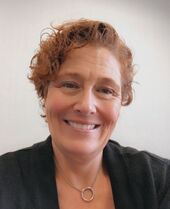 Biography. Jessica Alward has been with the State of New Hampshire Division of Public Health Services for almost two years and recently earned her MS in Homeland Security and Emergency Management. With a background in education and training, she works full time as an academic detailer all over the state. In her spare time she enjoys directing community theatre productions, running and hiking. She is married to Scott and mom to two grown sons. An interview with Kristefer Stojanovski, MPH, PhD(c), Public Health Researcher and Evaluation Specialist, Capacity Building Assistance Program, San Francisco Department of Public Health by Anna Morgan, RN, BSN, MPH, NaRCAD Program Manager Tags: Data, Evaluation, HIV/AIDS, PrEP, Sexual Health NaRCAD: Hi, Kristefer! Thanks for taking the time to chat with us today. Can you tell us a bit about your background and the work you’re currently doing as it relates to academic detailing?  Kristefer: Thanks for having me. I’m a public health researcher and an evaluation specialist with the Capacity Building Assistance Program at San Francisco Department of Public Health. I serve as a specialist and a technical assistance provider for the West region of the United States. My work is focused on data and evaluation of academic detailing programs that are working on topics like sexual health, HIV, and PrEP. My main goal is to help folks measure, or think about, what “success” may look like for an academic detailing program. NaRCAD: What data do you think is most important for academic detailers to track during their visits when measuring or thinking about success? Kristefer: I see evaluation data and detailing efforts as one complete package. Detailers should think about their data at a high level and focus on the information they’re collecting and how that information serves the overall goal of detailing, which is to improve knowledge, attitudes, intentions, and behaviors of providers and clinics. At the same time, detailers should think about how they can show that they’re achieving that goal. For example, it’s useful to track how many providers they’ve seen, how much time was spent with providers, what they talked about during the visit, the resources that were provided, how the providers plan to use those resources, if a follow-up visit was scheduled, and the purpose of that follow-up visit. It’s important to track a mix of quantitative and qualitative data, but the critical components that should be tracked are the outcomes and the process of detailing. NaRCAD: What about academic detailing programs? What data should they collect? 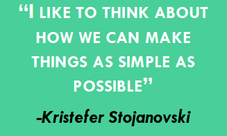 Kristefer: In a typical detailing program, detailers have a longitudinal, continuous outreach to providers. There’s an interesting conversation to be had about how we can use that temporal matrix as a tool and strategy for evaluation. I’m interested in how we can use the work academic detailers are doing – the actual visits themselves - as pieces of data over time. For example, if detailers are collecting some of the rich conversation that they’re having with providers or clinics, it’s fascinating to track those conversations over time and see how the detailing program is changing the knowledge, attitudes, intentions, and behaviors of those providers and clinics. There’s a lot of work that detailers are already doing that can be easily turned into data sources for both the detailing effort and the evaluation effort. I like to think about how we can make things as simple as possible. NaRCAD: Is there a specific platform that makes things simple and is best for collecting data for academic detailers and programs? Kristefer: That certainly becomes a little bit more individualistic when thinking about the needs, challenges, and abilities of each jurisdiction. Detailing is a conversational effort that is attempting to make concrete behavior change, so it becomes more convoluted when you think about how to track a conversation. Some jurisdictions might have a place to track conversations in their electronic health record, where others may not. At the most basic level, detailers can chart their conversations on one-page Word documents. The detailers I worked with charted their conversations with providers over time and eventually put it in one large PDF that could be easily uploaded into a qualitative data analysis software. You have to be creative when it comes to tracking this information. NaRCAD: How would you recommend that programs with limited resources go about data collection and evaluation?  Kristefer: A lot of times we say we want to have high-tech solutions when we don’t actually need them. For a resource constrained department, having that one-page Word document that allows detailers to chart their interactions is more than enough data. Charting for just five minutes after a detailing visit about everything that took place becomes a wealth of information. You can also use an Excel document to input data from provider surveys. There are many low-tech ways to track information and it’s important to be aware of the low hanging fruit in terms of data collection. You want to be able to easily collect data that serves the detailing efforts, the program, and the evaluation and improvement process. NaRCAD: That’s a great way to look at it. What are some best practices for using data for leadership buy-in? Kristefer: I can’t stress enough how important data is in getting leadership buy-in. Data is not only quantitative and qualitative, but also using the information gathered to tell a story. It would be a strong statement if someone was able to go to leadership with a story about how providers have changed their practices based on the detailing effort. Using concrete results and showing leadership that detailing is making a change is extremely helpful for buy-in. Being able to show crazy big outcomes with your data won’t happen, but sharing stories from providers and clinics about how detailing has helped them is quite moving. I’ve heard some amazing stories during my evaluation. For example, detailers helped providers at some clinics to provide patients with directly observed therapy for PrEP at the same time that they were providing them with medication-assisted treatment for opioid use disorder. It’s impressive that detailing at those sites was able to make the clinics think creatively and be able to provide PrEP to these patients. NaRCAD: That certainly is impressive! What has surprised you the most about the academic detailing data you’ve evaluated? 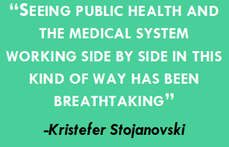 Kristefer: I can’t help but to think that pharmaceutical companies spend millions of dollars and resources on this model and they certainly wouldn’t have been doing this for decades if it didn’t work. We’re almost a little late to the game as public health practitioners, but through my experience evaluating some of this work and reading other evaluations, I’ve been shocked by how much providers truly value detailers. It’s fascinating to see how these health systems and departments are viewed as trusted partners by providers and clinics and how detailing has served as a role to improve that partnership and collaboration. Providers have often said how crucial this information has been in getting access to Department of Public Health resources they didn’t even know existed, which is pretty sad. Seeing public health and the medical system working side by side in this kind of way has been breathtaking. 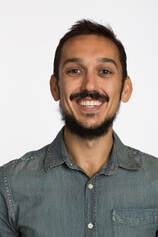 Biography. Kristefer Stojanovski is a PhD Candidate in the Department of Health Behavior & Health Education, School of Public Health at the University of Michigan. Kristefer has been doing community-based mixed methods research since 2010. His research explores the social and structural determinants to sexual health and HIV outcomes among key populations in the U.S. and in Southeastern Europe. Kristefer’s work interrogates how stigma drives HIV risk and infection using complex systems theory, structural equation, agent-based and multilevel modeling. Kristefer also translates his research into policy and decision-making. He is an evaluation specialist with the Capacity Building Assistance program with the San Francisco Department of Public Health. An interview with Brandon Mizroch, MD, MBBS, Provider Network Supervisor, Louisiana Department of Health by Anna Morgan, RN, BSN, MPH, NaRCAD Program Manager Tags: Hepatitis C, HIV/AIDS, PrEP, Rural AD Programs, Sexual Health, Stigma, Training 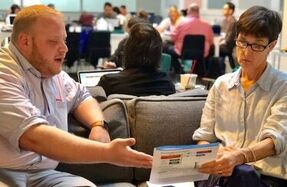 Dr. Mizroch participating in a NaRCAD training Dr. Mizroch participating in a NaRCAD training NaRCAD: Thanks for chatting with us today, Brandon! We’re excited to be catching up with you. Can you tell us about your program at the Louisiana Department of Health and the work you’re currently doing? Brandon: Absolutely. I was hired to do work around PrEP and PEP, detailing providers across the state of Louisiana, in 2017. Since then, my role has expanded and I promote education for providers about syphilis, congenital syphilis, and Hepatitis C. Our department now has 3 detailers, including myself. Louisiana became the first state in the country to undergo an incredibly revolutionary Hepatitis C Elimination Plan, which has caused my detailing focus to shift. There’s been huge advancements in the drugs that treat Hepatitis C, but they’ve been inaccessible to much of the population due to cost. We negotiated a fixed rate price for Hepatitis C treatment and can now treat 100% of the population, compared to the 3% of the population we could treat previously. There’s been a big push to identify and train providers who’ve never previously treated patients with Hepatitis C. I’ve been leading the charge by getting the word out, running symposiums, and working with the marketing team that’s creating our statewide campaign.  NaRCAD: Wow, that sounds like innovative and exciting work. Can you explain your program’s approach a bit more? Brandon: I try to blend a few different approaches together. I attended the NaRCAD training during my first year as a detailer. NaRCAD built the foundation of detailing for me. I always use the NaRCAD methodology to get my foot in the door and identify providers who can be champions within their practices. I find it much easier to follow up and do longer didactic sessions about complex clinical topics when I use the techniques of academic detailing during my first face-to-face visits with providers. I connect with about 20 providers in this 1:1 model each month. I also work with residency programs, hospital systems, and present at Grand Rounds to expand my reach. There’ve even been instances where I’ve attended dinners for physicians that are hosted by pharmaceutical companies to network and identify new clinics that would benefit from detailing. NaRCAD: We’re happy to see that you’re blending academic detailing with other approaches. Do you provide follow-up to providers after your visits? Brandon: Follow-up is incredibly important, no matter what approach is being used. I like to send an email after each visit that includes digital resources for both providers and patients. I also offer providers the ability to call, text, or email me because of the apprehension that exists around topics where the knowledge base is still growing. Maintaining relationships with providers also ensures that we have a strong provider network that we can continue to educate on other clinical topics down the road.  NaRCAD: Building a connection with providers is imperative, especially as you move into different clinical topics. Your program spans the entire state. Do you find that there’s a difference when you provide clinical outreach education in rural vs. urban communities? Brandon: Yes, there’s certainly a difference. The providers in urban areas tend to have a higher knowledge base when it comes to PrEP and syphilis, perhaps due to marketing efforts or higher patient loads. This makes starting the conversation a bit easier. Additionally, urban communities have access to navigators, who help with non-medical aspects, like transportation issues, lack of health insurance, and long commute times that all prevent folks from getting the treatment they need. Providers in urban areas are also busier and easily distracted during 1:1 visits, which can make detailing a bit difficult. On the other hand, rural communities are quite the opposite. Providers tend to have more time in their schedules and are excited to sit down with somebody from the state office. They’re eager to learn, but there’s typically less of a knowledge base, making it slightly more difficult to start the conversation. I’ve also learned about patient barriers as well, which affect access and provider care. Patients in rural areas are often friends or family with those throughout the community, including those who work at clinics. The notion that you would know the receptionist or provider at a clinic is enough to deter folks from seeking medical care around a topic like sexual health. To encourage access, our state has created a TelePrEP program that offers PrEP services to anyone via telemedicine. Consultations take place over the phone, labs are obtained at third party lab companies, and medications are mailed right to the front doors of patients. It was originally created to help folks in rural communities who face stigma-related barriers, but we’ve expanded the program across the entire state of Louisiana. It’s a great referral service that I can share with providers.  NaRCAD: It’s wonderful that you’re able to identify these challenges and have resources and tools to address them. What’s one piece of advice you’d give to folks who are detailing on a similar clinical topic or have a large geographical region to cover? Brandon: It’s important to have several different ways of presenting information to the providers you’re detailing and to use varied approaches depending on the barrier(s) they’re facing. I typically focus on emotional connection, financial concerns, and the evidence and science behind the key messages I’m delivering. I’m also ready for provider resistance, and am prepared to address it, which is something I learned from NaRCAD. When it comes to detailing over a large and diverse geography, it’s always necessary to plan ahead. My general rule of thumb is that however many hours it takes to drive to a location, that’s how many providers I want to meet with while I’m there. I typically try to use larger educational events, like meetings with clinics over lunch, as my anchor point for longer trips. After I have that scheduled, I search for smaller clinics around the area where I can meet with providers 1:1. It’s all about maximizing your time. 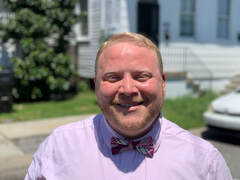 Biography. Brandon Mizroch received his MD/MBBS from the University of Queensland/Ochsner Clinical School Program in November of 2016. Since taking over as the PEP/PrEP Provider Outreach Specialist at the Louisiana Department of Health in August, 2017, he has worked with hundreds of doctors statewide on HIV prevention best practice. Since then he has expanded his educational base and now serves as the head of the academic detailing department at the Louisiana Department of Health, Office of Public Health, STD/HIV/Hepatitis program. As the Provider Network Supervisor he has helped lead the provider Outreach for the state’s first-in-the-nation Hepatitis C Elimination program. From grand rounds presentations at LSU-Shreveport Hospital and Baton Rouge General, to state-wide symposia and conferences, to one-on-one counseling encounters at dozens of clinics all over Louisiana, he has helped spread awareness and education on HIV prevention, syphilis screening and treatment, and HCV screening and treatment through evidence-based care. 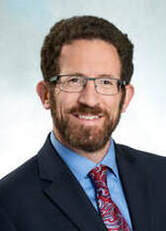 Director's Letter | Mike Fischer, MD, MS, Director of NaRCAD Tags: Director's Letter, HIV/AIDS, Opioid Safety, Training As NaRCAD enters its 10th year as the only national resource center dedicated to clinical outreach education, we’re ready to take our collaborations with you to the next level. The strength and sustainability of NaRCAD has grown from the hard work we’ve done together with you, our community members in the field. We’re committed to continuing to provide the technical assistance you need to make your programs innovative, efficient, and successful. As we kick off 2020, our entire team at NaRCAD invites you to join us in leading our field forward through strategic partnerships, resource-sharing, and peer learning, all to implement important initiatives that will have a significant impact on clinicians and their patients. The nature of our role as a resource center has continued to grow in parallel with increased recognition of the importance of academic detailing as a strategy to address multiple clinical challenges. We’ve been especially excited to see the effectiveness of AD enhanced when aligned with other initiatives to improve the quality of care. Responding to this growing demand, we’ve dramatically expanded our reach, conducting 20 trainings in 15 different states across the US in the past two years alone, and 2020 looks to be no different. With the increased demand for AD technical assistance, we have a busy year ahead of us, from capturing your successes and sharing them via our DETAILS Blog to training your detailers to be ready for field work (and troubleshooting challenges along the way.)  Along with continued trainings across the US to improve opioid safety in partnership with states supported by the CDC’s Overdose Data to Action (OD2A) grants, we’ll also continue the important work of training new detailers to educate clinicians about using HIV PrEP to reduce the risk of new HIV infections, also through CDC-funded programming. We’re equally excited to have launched a new CDC research grant in collaboration with the Oregon Health Authority to rigorously evaluate the impact of their OD2A intervention and to develop a model for pragmatic assessment of similar efforts in other states. If you’re also interested in evaluating the impact of your AD program, reach out and let us know—we’re eager to hear from you.  Although we have been conducting more trainings recently, we see the demand for them continuing to grow at an even faster pace. As we grow, so does our core team, and all of us are dedicated to amplifying the impact of the important work you do. We’re already starting to plan for NaRCAD2020, our 8th annual conference, and we invite you to consider submitting your ideas and innovations when we start accepting submissions on March 1, 2020. But you don’t need to wait until then—we’re here to offer you customized support to strengthen your program, as you plan for success in 2020 and beyond. Happy New Year! -Mike Biography.
Michael Fischer, MD, MS, Director, NaRCAD Dr. Fischer is a general internist, pharmacoepidemiologist, and health services researcher. He is an Associate Professor of Medicine at Harvard and a clinically active primary care physician and educator at Brigham & Women’s Hospital. With extensive experience in designing and evaluating interventions to improve medication use, he has published numerous studies demonstrating potential gains from improved prescribing. Read more. Featuring: Mary Nagy, MPH, RN/BSN, Public Health Detailer, HIV Care & Prevention Unit, Michigan Department of Health and Human Services, NaRCAD Training Alumnus Tags: Detailing Visits, Health Disparities, HIV/AIDS, Sexual Health, Stigma  NaRCAD: Thanks for joining us, Mary! You’re a Public Health Detailer in the HIV Care & Prevention Unit at the Michigan Department of Health & Human Services. Before we talk about how you got into your current role, can you tell us what you were doing before that? Mary Nagy: I was an ER nurse for five years. During that time I worked all over the country in lots of different settings, but I noticed the same patterns playing out no matter what city I was in. I was seeing patients daily who were either in the last hours of their lives or needing immediate life-saving interventions as a result of medical problems that might have been avoided entirely through basic services or preventative medicine. The longer I worked ER, the more clearly I saw the effect of systemic forces and environment on health, their unequal distribution across society, and the more I wanted to find a way to work towards health equity. I decided to study public health, and earned my master’s degree in Environmental Health Science at the University of Michigan. In addition to giving me the opportunity to design and carry out my own research, the program I did had a strong health policy component, which helped me add to the understanding of healthcare delivery I formed during the time I spent at the bedside. 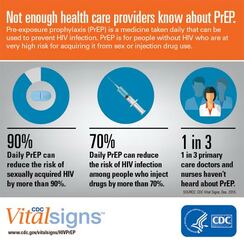 NaRCAD: Tell us what interested you about your current position and what a “day in the life” of a detailer looks like for you. Mary Nagy: I saw the job posted and was immediately interested in it because I think detailing, especially on the topic of pre-exposure prophylaxis (PrEP), is a really effective way to strengthen prevention infrastructure and affect health outcomes. Clinicians are under a lot of pressure and I was drawn to the idea of being a source of relevant, high quality, trusted information. The detailing program here in Michigan is comparatively young and its development is ongoing. Fortunately for me, lots of folks have been willing to help! I've drawn from a broad range of sources has been really helpful during detailing visits, because the needs of providers are so diverse; folks are asking about billing and coding for PrEP visits, standing orders, HIV risk assessment, nuts and bolts of services offered by our state lab, STI screening and trends, and financial supports for PrEP, best practices with PrEP initiation and follow up, and more. I’ve been working hard to broaden my knowledge base, but also to identify resources for questions I don’t know the answers to and topics I’m weaker on. 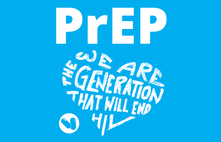 Image from UNAIDS Image from UNAIDS NaRCAD: Why are you passionate about HIV prevention, and why is academic detailing for HIV prevention so important? Mary Nagy: Even though I’m very new to the field, I think it’s a very exciting time to be doing this work because I do believe it is possible to end the HIV epidemic in the US within the next few decades. Racial and ethnic minorities continue to be underrepresented in PrEP utilization and overrepresented in new HIV diagnoses, and I want my work to contribute to correcting this. I think PrEP can be a tool for health justice and being part of that is valuable to me. 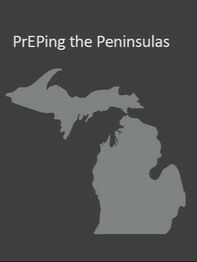 NaRCAD: You’ve mentioned environment a couple of times. Can you tell us how environment is connected to HIV contraction and prevention, if at all? Mary Nagy: I think that’s where my mind goes, because I’ve seen the powerful effect of environment on health, and this is certainly true on a population level. I never want to diminish the power and agency of individuals, but everyone operates under multiple layers of forces. Examples of this include policy, especially the persistent legacy of overtly racist housing policies; the “war on drugs” and resulting mass incarceration; or a justice system that data shows us doesn’t work in the same ways for everyone. These systemic forces, applied to millions of people over many decades, result in the disparities we see in HIV rates, overall health, wealth, and many other areas. Increasing access to PrEP means we can mitigate some risk for folks who might have more exposure due to the environmental context in which they live. For Michigan, one of the ways detailing can help make PrEP easier to access is increasing geographic availability. A large portion of our state is rural, and many counties do not currently have a known PrEP provider. Another challenge is, of course, cost. The cost of PrEP and associated visits and screening tests is a policy issue, and while we hope and expect to see cost come down in the future, in the current landscape, it's important to prioritize educating providers and their staff on available financial supports and how to apply them, so cost doesn’t keep people who can benefit from PrEP from getting and maintaining access.  Image: University of New Mexico Image: University of New Mexico NaRCAD: In addition to geography and coverage, what are some other barriers you’ve encountered when doing academic detailing for HIV prevention? Mary Nagy: Stigma around HIV and other STIs is a big issue. We know that when providers talk openly with patients about their sexual health, they’re better able to accurately assess risk for HIV and STIs and screen and treat appropriately, but those conversations are not happening with enough regularity. Rates of STIs like gonorrhea, chlamydia, and syphilis have been rising, and continue to increase, so there's a lot of opportunity there. NaRCAD: How has detailing been received overall? Are providers open to education on PrEP? When I think about why detailing is important and why I’m doing it, the first thing that comes to mind is a recent survey of primary care providers MDHHS carried out in Southeast Michigan. Providers were asked which supports would best help them to incorporate PrEP into their practice, and "education" was by far the most frequent answer. In addition to the research I’ve seen indicating detailing is an effective intervention to change provider behavior, it's clear that the providers themselves agree that education is important. If we can work with providers to make PrEP available and easy to initiate and maintain, the protection it offers from HIV can improve health outcomes for patients at high risk.  Biography Mary Nagy, MPH, RN/BSN Public Health Detailer, HIV Care & Prevention Unit Michigan Department of Health and Human Services Mary is the public health detailer for the State of Michigan and conducts direct outreach with medical providers to support HIV prevention strategies and stigma reduction statewide. She received her master’s degree in Environmental Health Science from the University of Michigan School of Public Health where as a Graham Sustainability Fellow her research focused on municipal water quality and affordability. Mary also has several years of experience working in as an Emergency Department RN in trauma centers across the US and her work in health equity is informed by her time as a frontline health worker. Kayland Arrington, MPH, Program Manager at NaRCADTags: HIV/AIDS, Opioid Safety, LOOPR, Training This New Year, NaRCAD has new staff, new partnership sites, and will be addressing critical topics in health. We’ve had a successful 2018, and we’re already working hard to improve patient health through clinician education in 2019.  One of the main topics we provide support on is HIV prevention for high-risk patients. While it is true that rates of HIV are declining in some populations, other groups are still very much at risk for developing HIV. According to the Centers for Disease Control (CDC), half of all black men who have sex with men will contract HIV in their lifetime. These statistics are staggering, and NaRCAD is doing everything we can to help by engaging directly with frontline providers who can communicate best options for prevention directly to their patients. We do this by training academic detailers to meet with clinicians to offer tailored, evidence-based clinician recommendations. 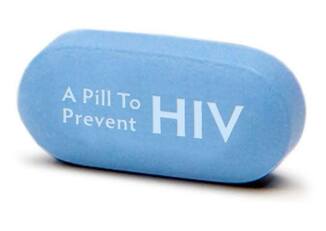 Image Credit: AIDS Coalition of Nova Scotia Image Credit: AIDS Coalition of Nova Scotia In December, we traveled to Las Vegas to facilitate an AD training to increase prescriptions of Pre-exposure prophylaxis (PrEP). PrEP is a daily medication prescribed to people with a high risk of developing HIV. The CDC reports that PrEP reduces the risk of getting HIV from sex by more than 90%; it also reduces the risk of contracting HIV from injection drug use by more than 70%. NaRCAD is continuing our work in 2019 to train health educators to talk to frontline clinicians about the benefits of prescribing PrEP to their high-risk patients. Our first training of 2019 is in February at the PrEP Public Health Detailing Institute in San Francisco, hosted by our partners at the San Francisco Department of Public Health. 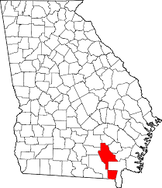 We’ve also added on 2 new sites to our county-level LOOPR Partnership! We will be traveling to St. Francois County, Missouri and Ware County, Georgia in March. The CDC has identified 220 counties (5% of counties in the nation) that are at highest risk of HIV and/or Hepatitis C as a result of the opioid crisis. St. Francois County, MO is ranked 69 out of those 220 counties. Ware County, GA is located in the southeast corner of the state and doesn’t have as much access to resources as counties more centrally located. NaRCAD is excited to join both of these high-burden counties in their efforts to reduce harm from the opioid crisis. 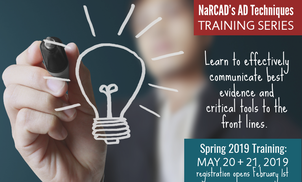 One element that is a common thread with both HIV and the opioid crisis is the fact that these are both highly stigmatized clinical topics. Along with community stigma, clinicians themselves may be inadvertently biased against patients with substance use disorder and/or those at high risk for developing HIV. As the result of a fear of stigma, it’s also common for patients to refrain from sharing high risk behavior with their providers. To ensure that front line clinicians increase PrEP prescribing and work to treat pain in safer ways, the academic detailers we train this year will also explore ways to address clinician stigma. Along with our county-level support, we’ll also travel to Tennessee, Oregon, and Maryland this year. And as always, we’ll hold our usual Boston home trainings in May, July, and September before our year comes full circle at our 7th Annual International Conference on Academic Detailing in November. No matter how we connect in the year ahead, our entire team is looking forward to supporting you in 2019—let us know how we can help, and stay tuned for more updates here on the DETAILS Blog.  Biography Kayland Arrington, MPH | Program Manager, NaRCAD Kayland earned her Master’s Degree in Public Health from Boston University, with concentrations in Health Policy and Law and Maternal and Child Health. She has experience coordinating suicide prevention and awareness programs. She also has experience in health promotion and education on topics ranging from substance use disorder to sexual violence. Kayland is passionate about improving access to resources, supporting population health programming, and is an advocate for evidence-based medicine. Read More.  Tags: Detailing Visits, HIV/AIDS, LOOPR, Opioid Safety, Training We've been staying busy here at NaRCAD this spring! With public health challenges like the opioid crisis, and the continued need for HIV prevention, the team here at NaRCAD has been on the road for 5 trainings in 6 weeks, and we're not stopping yet! On February 14th - 16th, 2018, NaRCAD joined the amazing teams at San Francisco Department of Public Health and the New York City Department of Health and Mental Hygiene for an exciting initiative: A Public Health Detailing Institute on HIV PrEP and RAPID. Hosted in San Francisco's South Market neighborhood, 31 trainees attended, representing diverse public health departments from Texas, Connecticut, Alaska, Louisiana, Florida, Tennessee, Los Angeles, San Francisco, Mississippi, Michigan, Oregon, Nevada, Virginia, and beyond. These trainees joined the institute for a customized, 3-day event focusing on learning the techniques of academic detailing, along with showcasing best practices and success stories via special presentations and expert panels. 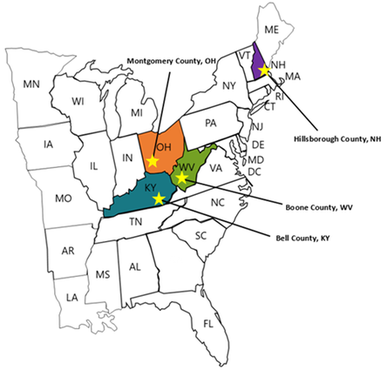 This past month, from March 7th through April 4th, 2018, NaRCAD hit the road four more times, as part of an exciting 4-site pilot project in partnership with our terrific colleagues at the CDC (Center for Disease Control) and NACCHO (The National Association of County and City Health Officials). Upon identifying counties and cities with the highest burden of fatal and non-fatal opioid overdose and high prescribing rates, the CDC selected Bell County, Kentucky; Boone County, West Virginia; Manchester, New Hampshire; and Dayton, Ohio as 4 pilot sites in which to convene with key community stakeholders and roll out community action plans, along with targeted academic detailing interventions.  Our work has involved launching on-location trainings at each of these pilot sites, focusing on providing front line clinicians with tools and support to improve outcomes for patients. Messaging and support for these campaigns include lowering prescribing rates, referring patients to treatment for opioid use disorder (OUD) including Medication Assisted Training (MAT), and using their state's PDMP (Prescription Drug Monitoring Program) to identify troubling patterns of use, which may, in turn, help to identify those patients who need more support and care. 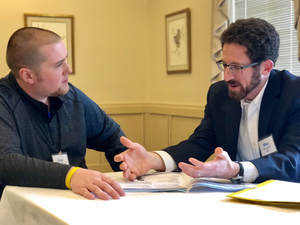 Trainees at each site of these pilot sites work with us across two days to learn the structure of an academic detailing visit, practice role playing 1:1 visits with clinicians, and become experts at using educational materials (including a suite of materials constructed by the CDC based on their 2016 Opioid Prescribing Guidelines). Our pilot site trainees walk away from our trainings ready to actively engage with clinicians to assess individual needs and provide customized support, and encourage behavior change for the opioid crisis in their respective communities. 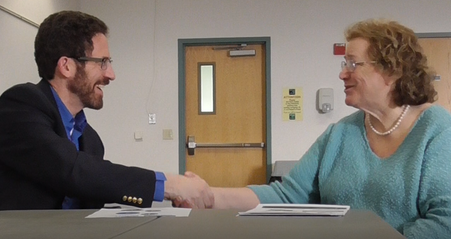 NaRCAD's team will continue to focus on launching new academic detailing interventions across the U.S. well into 2018, with upcoming opioid-specific trainings being carried out in late May in Albuquerque, New Mexico, with the University of New Mexico's Health Sciences Center, and in late June in Lansing, Michigan, with the Michigan Public Health Institute.  Our next all-topic, AD techniques training in Boston will kick off at the end of this month, where we'll train 24 health professionals from across the U.S.--we'll report back after that training and share lessons learned, highlights, slide decks, and clinical topics from represented programs, and we look forward to sharing those with our community. Join our subscription list to receive alerts for upcoming training opportunities. Want to customize a clinical topic-specific training for 15 trainees or more, on site in your community? Reach out to us to schedule a training consultation call at [email protected]. We can't wait to work with you! -The NaRCAD Team  The NaRCAD Team Tags: Cardiovascular Health, Conference, HIV/AIDS, Rural AD Programs This year's 5th International Conference on Academic Detailing, held in Boston on November 6th & 7th, 2017, brought our programming to new heights. We were inspired by the high levels of interactivity woven into the two days of programming, ranging from live polling during expert panels to critical dialogue about dealing with stigma in the face of the opioid crisis. We heard from various AD practitioners across the United States and Canada, with an emphasis on improving health outcomes for patients dealing with risk of heart failure, those living with chronic diseases such as COPD and diabetes, and prevention for those at high risk of contracting HIV. Our sessions were diverse in terms of content as well as geographic representation--we learned from clinical education experts about the specific challenges of detailing in rural areas, as well as from those whose role was to support detailers in the field by creating dynamic, engaging, and cost-effective educational materials. We're grateful to the community of supporters of academic detailing, from those who work full-time in the field to those who are building programs; we were delighted to see old friends who've been attending since our very first conference, as well as to meet folks who are just getting started. If you can believe it, we're already thinking about NaRCAD2018, and we have our community to thank for it--so thank you, for raising the bar this year and bringing innovation, exciting progress, and new energy to our conference series. For those of you who missed out in person, you can enjoy highlights from 2017's program on our conference hub page. We'll be announcing the dates for our 2018 conference in early January 2018, and we'll be opening the process for presentation applications on March 1st, 2018, so check our Conference Series page for both announcements. Whether you choose to present, attend, or tune in via on-demand video and social media, we wish you a happy rest of 2017, and we hope to help your program grow in 2018. See you next year! -The NaRCAD Team 'Guest Blog | Alyson Decker, NP, MPH | San Francisco Department of Public Health Tags: Detailing Visits, HIV/AIDS, PrEP, Sexual Health 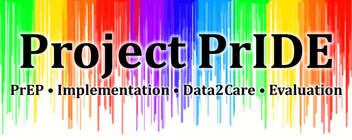 Our AD program is part of a 3-year demonstration project (CDC Project PrIDE), and as part of our grant-funded work our overarching goal is increasing PrEP access and prescribing to MSM (men who have sex with men) of color and transgender persons who are at substantial risk of acquiring HIV. Our goals include improving sexual health in the primary care setting, refining sexual health history-taking, increasing screening and testing for those with risks, promoting best practices around PrEP prescribing, and helping to establish relationships between our health department and our community providers. 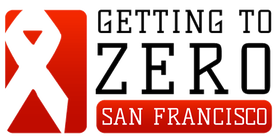 The added benefit of public health detailing is that it also increases awareness about the issues that affect our community. I have been inviting clinicians that I meet to join us in our city-wide Getting to Zero consortium, which helps providers feel that they are part of this important movement of preventing HIV transmissions, deaths, and stigma. 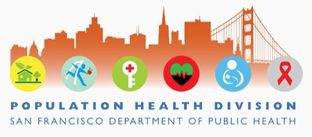 In San Francisco, there is a need for urgency around this issue, especially because it’s become evident that as HIV transmissions continue to decrease, the disparities among new HIV positive diagnoses become more apparent. Many of these disparities are among communities who still may not be aware of PrEP, or are facing barriers to access. Our academic detailing program strives to reach the providers who work with these vulnerable communities.  When kicking off an intervention such as this, identifying the clinicians who see this target population is the first step. To do this, we used STD surveillance data to determine which providers and clinics were diagnosing syphilis and rectal gonorrhea and chlamydia, which are associated with an increased risk for HIV. However, since many providers are not performing appropriate screenings, we also reached out to clinics known to serve our priority population and those located in neighborhoods with the highest HIV incidences.  The next step is how to “get in the door” with these clinicians, which means finding a way to secure a 1:1 visit. I’ve found that initial non-responsiveness isn’t the end of the world—persistence pays off, so keep trying to get in the door, or find an entry point through other community contacts. Sometimes, choosing a different access point can really work well to start a relationship. There are many places where 1:1 visits aren’t feasible due to clinic structure or culture. If I’m able to detail to a small group, it can be a way to meet with a few providers and gain insight about how PrEP might be incorporated or enhanced in their setting. Being invited to an all-staff meeting is often an excellent way to kick off an introduction to this important intervention, and can result in follow-up conversations with individual clinicians. One benefit of meeting in small groups is that if a clinician hears a fellow clinician say that he or she is already prescribing PrEP, there may be more openness to discussing the topic; other providers might feel comforted in having a PrEP "ally", resulting in buy-in from the clinic overall. Some clinicians may think that this type of intervention isn’t relevant to their patient population; as I detailer, I often hear responses such as, “I don’t see this population reflected in my practice,” or “My patients don’t have this risk,”, even if it’s been proven that these clinics do, indeed, serve priority populations. In order to talk about PrEP, you first have to talk about risks for HIV, which often means talking about sex. I think there can be discomfort on both the patient and provider side, and sex is often still a stigmatized topic. There are also overarching resource barriers, including the fact that clinicians are extremely busy and have to address competing health needs in the primary care setting.  While a small pool of clinicians have minimal understanding of PrEP, and require a basic overview about elements like identifying potential PrEP candidates, how to take a good sexual history, and how to bring up PrEP in an appointment, I’ve found that many clinicians are aware to some extent about PrEP already, and are interested in next-level details about how to implement it. This might include what kind of testing is recommended, how to increase number of basic screens, and increasing their knowledge about comprehensive health. There are also providers who are very advanced in their knowledge of what options are available to populations with risks for HIV. This is where the academic detailing becomes more intricate; some providers are seeing lots of patients with risk factors, and may have been prescribing PrEP already. In a scenario such as this, my messaging focuses more on how to support clinicians in ensuring consistent follow-up with their patients, or in how to deal with multiple risk factors, such as when high-risk sexual behavior may overlap with instances of substance use or homelessness. For those who are just getting started, it may help to know that even after meeting with 300 providers, I still get nervous each time I prepare to detail, especially if I’m unfamiliar with a practice. Regardless of the nature of my visits, I walk away feeling that I’ve accomplished something if I’ve answered only one question that’s helped the clinician with his or her practice. And I’ve found that in most cases, the people I meet with are very thankful for this service, and are appreciative of the health department. I always thank providers for the work they do and remind them what an important role they have in the community. 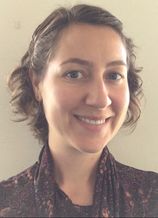 Biography. Alyson Decker, NP, MPH Alyson Decker is a Clinical Prevention Consultant and nurse practitioner with Disease Prevention & Control at the San Francisco Department of Public Health. As the branch’s lead academic detailer, she helped develop San Francisco’s first HIV pre-exposure prophylaxis (PrEP) detailing program. Her role consists of detailing with community providers to increase PrEP prescribing in the primary care setting and promote best prescribing practices. In addition, she provides training assistance to healthcare providers and frontline staff around improving sexual healthcare and STD testing and treatment. She also sees patients at the municipal sexual health clinic, San Francisco City Clinic. 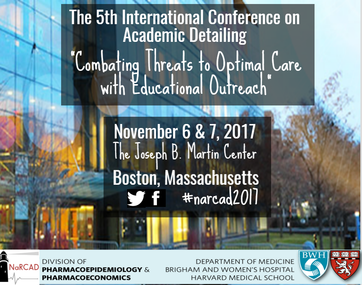 Mike Fischer, MD, MS, NaRCAD Director Tags: Conference, Director's Letter, HIV/AIDS, Jerry Avorn, Opioid Safety, PrEP, Training Fall is the season for conferences, and the most exciting one for us is #NaRCAD2017: Combatting Threats to Optimal Care! This year’s conference is a great chance for everyone interested in AD to learn more, whether you’re part of a long-standing program or just beginning to learn about the versatility and effectiveness of implementing this strategy to improve health outcomes. Our agenda is up, so take a peek, and register if you haven’t yet! 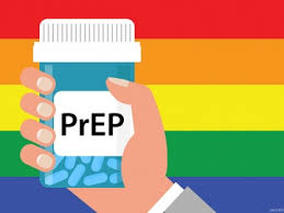 The keynote presentations will provide critical insights for creating and sustaining AD programs in different settings. Dr. Zoe Edelstein will kick off Day 1’s programming, representing the New York Department of Health and Mental Hygiene. This keynote will teach us about their public health detailing intervention to increase use of HIV pre-exposure prophylaxis (PrEP). The New York program was originally founded in 2002, so Dr. Edelstein’s presentation will help anyone from a public health background understand how to both develop and sustain AD, and to adapt it for new and pressing health challenges. 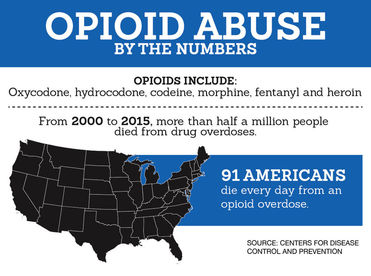 Dr. Carol Havens from Kaiser Permanente will provide a detailed overview of the longest-running AD program in the US, a program that was developed with input from Jerry Avorn soon after the original AD studies were published. We look forward to being inspired by lessons learned from a leading integrated health care system’s ongoing commitment to improving the quality of care around opioid safety with clinical outreach education. The rest of our conference agenda draws almost entirely from proposals submitted by members of our NaRCAD network – we received twice as many proposals this year! We’re looking forward to our “Field Presentations” sessions, featuring empiric results from detailers on the ground; expert panelists from the CDC, state departments of public health, and clinical care sharing important impressions on clinician stigma on the critical issues of HIV prevention and opioid safety; and breakout sessions covering many of the practical issues and challenges that detailers face when bringing best evidence to clinicians. Of course, for many of us, the highlight of each conference is the annual update from Jerry Avorn on the state of AD--see his recent blog piece, “Who Do You Trust?” for a preview of what’s to come!  The NaRCAD team is excited by the knowledge that integral opportunities, connections, and partnerships will be created at our unique 2-day event. But as excited as our team and our extended community may be about the conference, it’s not the only terrific development underway at NaRCAD this fall. We’ve continued to provide training and support for groups from around the country and the globe, with 2 trainings in the techniques of AD this past September, and more planned this fall and winter! Keep your eyes on our Training Series page for the official announcement of our Spring 2018 AD techniques training, and contact us at any time about opportunities and resources to support your AD program. See you soon, -Mike Biography. Michael Fischer, MD, MS, NaRCAD Director
Dr. Fischer is a general internist, pharmacoepidemiologist, and health services researcher. He is an Associate Professor of Medicine at Harvard and a clinically active primary care physician and educator at Brigham & Women’s Hospital. With extensive experience in designing and evaluating interventions to improve medication use, he has published numerous studies demonstrating potential gains from improved prescribing. Read more. Year One of Colorado Department of Public Health & Environment’s Detailing Program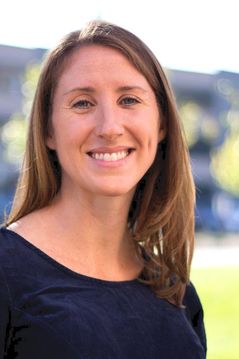 Guest Blogger: Deborah Monaghan, MD Public Health/Academic Detailer Colorado Department of Public Health and Environment NaRCAD Training Alumnus Tags: Detailing Visits, HIV/AIDS, PrEP, Training As the first and only detailer hired by the Colorado Department of Public Health and Environment, which serves 5.6 million people (about 3 million of which cluster around one metro area), the idea of building a detailing program from the ground up was incredibly exciting…and daunting. From the outset, it was important to determine the place of detailing within the community and establish its fit in the department’s mission. Shortly after joining the team, I presented the intended scope of my work at a department meeting--and it generated tremendous interest in the use of academic detailing for public health initiatives far beyond the current planned intervention. This served to solidify the potential value of clinical education outreach to leadership throughout the department. Lessons learned are continually surfacing as we move into year two, and a few key concepts are worth sharing. 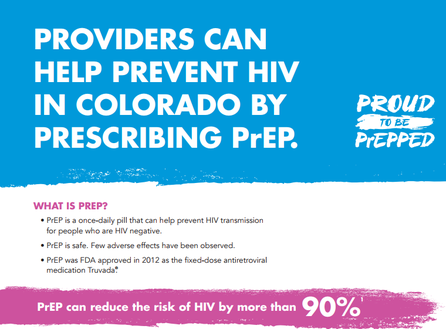 Particularly in the early stages of program establishment, it was essential to stretch resources and leverage partnerships. NaRCAD connections with other detailing programs facilitated the exchange of print resources, protocols and lessons learned, saving valuable development time. Through CDC-funded capacity building visits, I shadowed detailing teams at two other health departments' AD programs (San Francisco Department of Public Health and the New York City Department of Health & Mental Hygiene), which provided a framework for our own program’s function. At every opportunity, I presented our detailing goals to community partners and stakeholders, resulting in many connections to medical providers, which, in turn, generated most of our initial provider visits. Submitting articles for local clinical practice newsletters and magazines also established recognition and trust in the state’s new detailing initiatives. 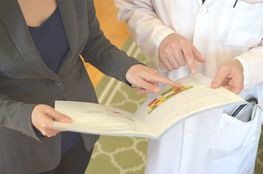 Once provider-facing detailing visits began, two things became quite clear: Providers crave connection to their public health department. Providers want regional data. In a state with both urban and rural/frontier areas, urban clinicians wanted to be seen as “boots on the ground” to impact large populations by treating their own patients, while rural providers wanted to be acknowledged as part of the team and directed to resources they could access remotely. All clinicians, both urban and rural, wanted the latest disease and health data for their county, zip code, and even census tract level to compare to the rest of the state. It has taken multiple attempts to get in the door in many practices. However, after a detailing visit, most providers are outspoken that they found the session worthwhile, and we've used this opportunity to ask for referrals to other providers who might be open to visits. The time investment has also enabled two-way communication allowing us to get a “finger on the pulse” of regional health and disease, particularly in the more rural areas. The initial time invested to establish relationships with providers was high, but the rate of return has justified the investment. With a new detailing program, the responsibility falls to the detailer to establish credibility, both in resources provided as well as in value for time spent. 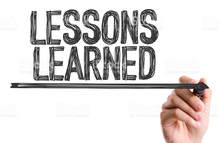 If I were starting a detailing program again, or could support new programs who were just getting started, I would love to be armed with these lessons learned: Establish as many protocols, procedures and resources as possible. Just start! Even if every detail isn’t in place, start visiting with providers. (The steep learning curve of on-the-ground visits is incredibly valuable and will continue to shape and improve your methods.) Document everything! As methods change and processes improve, document what is changing and why. Document with the goal of sharing not simply a starting point and a finished product but an entire story. Be willing to adjust in real time. Providers will have varying needs from one to another and from one day to the next, and our flexibility will ultimately strengthen the relationships we are trying to build, allowing academic detailing to have the greatest possible impact. Biography.
Deborah Monaghan, MD Public Health/Academic Detailer, Colorado Department of Public Health and Environment Deborah joined CDPHE in 2016 as the Department’s first detailer and currently provides clinical outreach on HIV prevention and sexual health. A graduate of the University of Mississippi School of Medicine, internship took Deborah to Drexel University in Philadelphia, Pennsylvania followed by residency at St Mary’s Hospital in Grand Junction, Colorado. She will complete her MSPH through the University of London School of Hygiene and Tropical Medicine in 2018. Initial response from the provider community receiving detailing has been overwhelmingly positive, and Deborah hopes to facilitate expansion of detailing efforts into other branches of public health to impact more Coloradans. |
Highlighting Best PracticesWe highlight what's working in clinical education through interviews, features, event recaps, and guest blogs, offering clinical educators the chance to share successes and lessons learned from around the country & beyond. Search Archives
|

